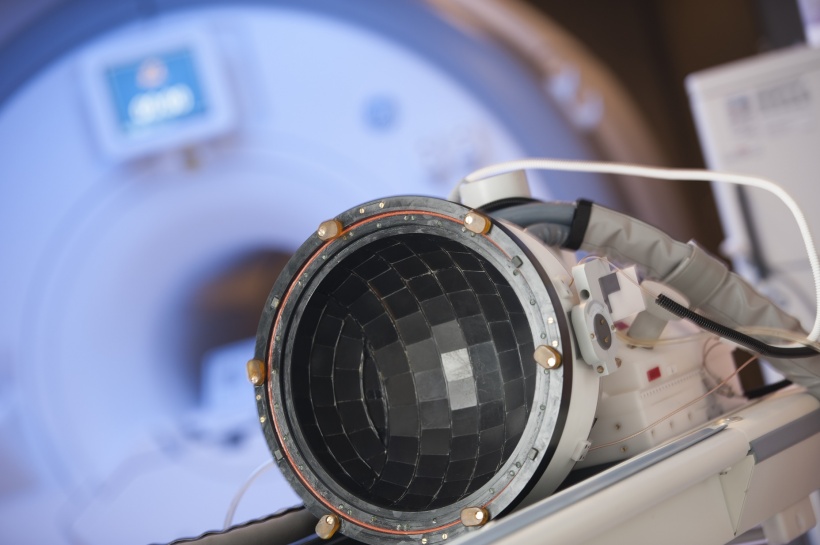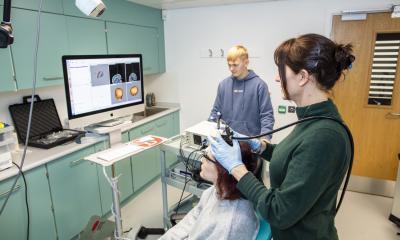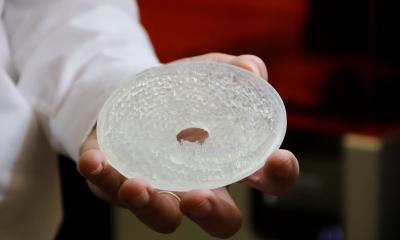News • Pivotal trial
Parkinson's disease: First patient treated with focused ultrasound
The first patient in a multicenter pivotal trial using focused ultrasound to address the major motor symptoms of Parkinson’s disease has been treated at Weill Cornell Medicine and NewYork-Presbyterian/Weill Cornell Medical Center in New York.
This randomized, double-blind clinical trial is evaluating the safety and efficacy of using Insightec’s Exablate Neuro device in more than 100 patients with advanced and medication-refractory Parkinson’s disease. The first patient is currently in the blinded phase of the trial. It remains unknown whether enrolled patients are in the treatment or sham arms, but all patients in the sham arm will be crossed over to receive the ultrasound therapy after completing the three-month blind. Patients are also currently being enrolled at the University of Maryland Medical Center and The Ohio State University Wexner Medical Center. Additional sites are expected to join.
We hope that the results will help us and the FDA determine whether this experimental therapy can be a safe and effective noninvasive option for patients who are having difficulty with medical therapy
Michael Kaplitt
"This important pivotal study builds upon earlier work in small groups of patients to determine if focused ultrasound can be a possible treatment for Parkinson's disease," says Michael Kaplitt, MD, PhD, Professor of Neurological Surgery at Weill Cornell Medicine and a neurological surgeon at NewYork-Presbyterian/Weill Cornell Medical Center. "We are excited to have enrolled the first patient among many centers throughout the world participating in this trial, and hope that the results will help us and the FDA determine whether this experimental therapy can be a safe and effective noninvasive option for patients who are having difficulty with medical therapy." Patients in the trial will be followed for one year after focused ultrasound therapy to determine overall effectiveness and durability.
This pivotal trial is a step toward regulatory approval by the US Food and Drug Administration (FDA) and insurance reimbursement for the widespread use of focused ultrasound as a nonsurgical treatment option to address the symptoms of this common neurological condition. It follows a pilot trial of 31 Parkinson's disease patients, treated at six sites in the US and Canada. That study was funded by the Focused Ultrasound Foundation and the Michael J. Fox Foundation for Parkinson's Research, and the results are awaiting publication.

The current study is being led by Howard Eisenberg, MD, Chair of the Department of Neurosurgery and Professor of Neurosurgery at the University of Maryland School of Medicine and Chair of Neurosurgery at the University of Maryland Medical Center, and device manufacturer Insightec is providing funding. "The goal of the focused ultrasound treatment is to both lessen the main symptoms of Parkinson's disease, which include tremors, rigidity, and slow movement, as well as treat the dyskinesia that is a medication side effect, so that less medication is needed," says Eisenberg.
Afflicting approximately one million people in the US, Parkinson’s disease has no cure, and the major options for treatment of motor symptoms include drug therapy and invasive surgery (e.g., deep brain stimulation or radiofrequency lesioning). For certain patients, focused ultrasound could provide a noninvasive alternative to surgery with a lower risk of complications and lower cost. Another pilot trial studied focused ultrasound’s role in treating patients with tremor-dominant Parkinson's disease, and the results of that study were published in JAMA Neurology in November.
"Parkinson's disease is a growing global health concern, and it is groundbreaking studies like this one that will make an immense impact in the lives of those who are suffering," said Foundation Chairman Neal F. Kassell, MD. "Focused ultrasound has the potential to provide an alternative, nonsurgical treatment for this condition, and innovative collaborations like this are critical for accelerating the development of focused ultrasound treatments for the brain." "Insightec supports innovation and research that pushes the boundaries of treating brain disorders with incisionless focused ultrasound," commented Maurice R. Ferré MD, Insightec's CEO and Chairman of the Board of Directors.
Source: Focused Ultrasound Foundation
27.04.2018











